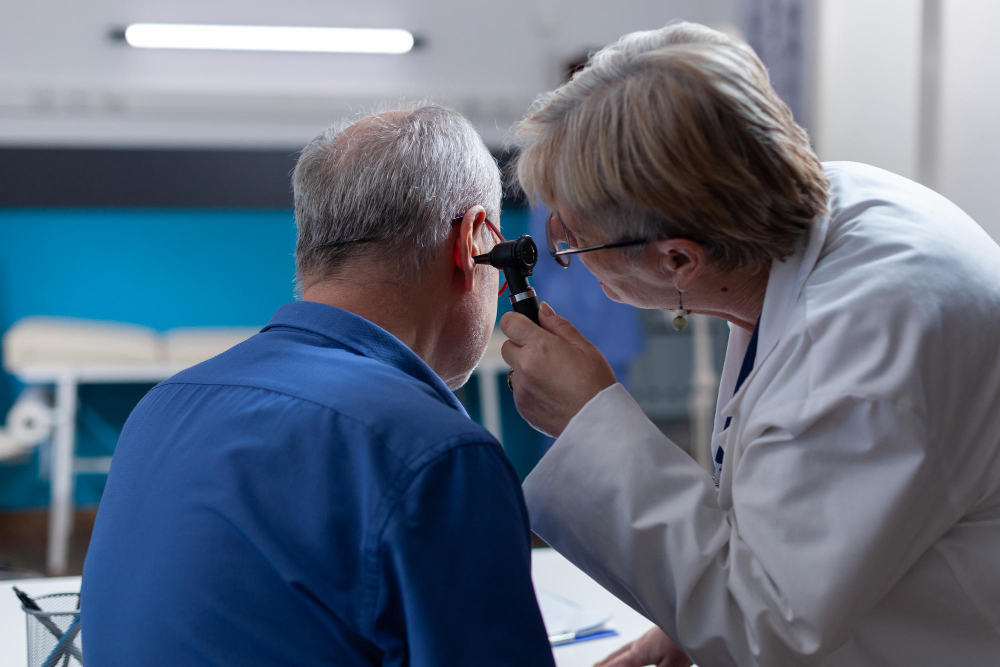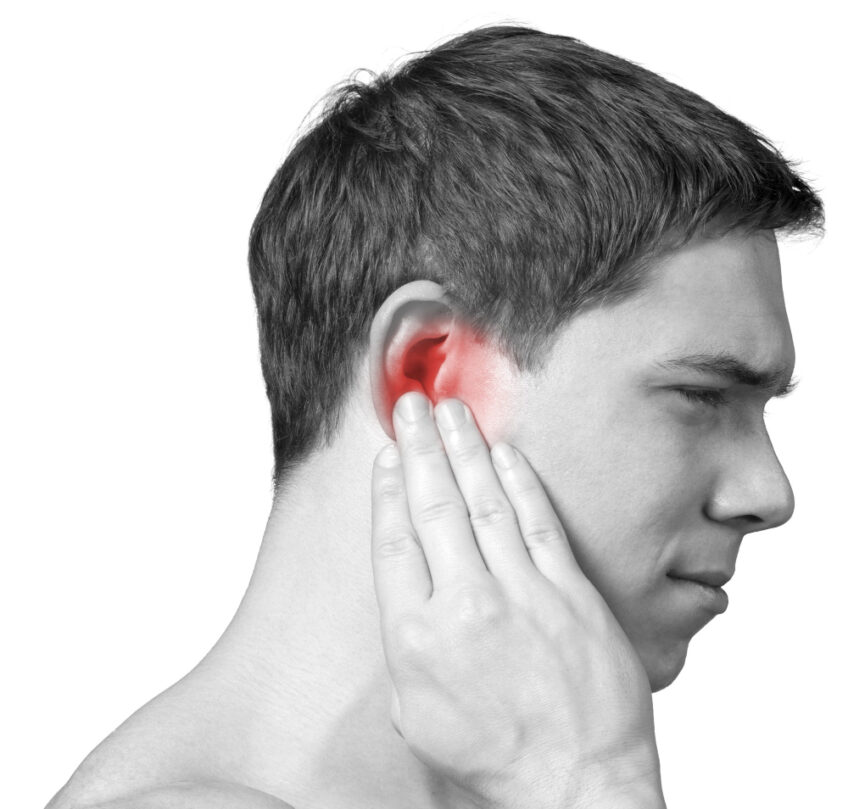Chest pain is a common symptom, and the most common cause is heart-related. However, other medical conditions may cause chest discomfort, including ear infections. If left untreated or improperly treated, ear infections can lead to inflammation of the surrounding tissue and result in chest pain.
In this detailed blog post, we will explore the often-overlooked connection between ear infections and chest discomfort. We will also discuss when to seek immediate medical attention for chest pain caused by various medical conditions.

Understanding Ear Infections
Ear infections are prevalent and uncomfortable medical conditions caused by a bacterial or viral invasion of the middle or inner ear, resulting in inflammation. While adults can get ear infections, they are most common in children and can be caused by respiratory infections, allergies, excess mucus, or a weak immune system.
Symptoms of an ear infection range from pain and discharge of yellow fluid from the ear to fever and difficulty hearing, depending on the severity of the infection. To avoid complications such as hearing loss, balance issues, and facial paralysis, it is essential to seek medical attention as soon as possible.
Antibiotics or other medications are commonly prescribed to treat the infection. However, surgery may be necessary in severe cases to repair any damage caused by the infection. By understanding the causes and symptoms of ear infections, individuals can take proactive steps toward prevention and early detection.
Ear Infections: How to Spot the Symptoms and When to Seek Professional Care
Ear infections are a prevalent condition that can cause a range of distressing symptoms, such as:
- Ear pain or discomfort
- A feeling of fullness or pressure in the affected ear
- Fluid drainage
- Reduced hearing
- Muffled sounds
- Fever and irritability
While some symptoms may go away independently, seeking professional medical care promptly to avoid complications and ensure your well-being is crucial.
The Importance of Seeking Medical Attention for Ear Infections
Ear infections can be excruciatingly painful and, if left untreated, can result in serious health problems. Consulting a qualified healthcare professional is critical for accurate diagnosis and effective treatment.
Depending on the severity of your infection, your doctor may prescribe antibiotics to reduce inflammation, eliminate the infection and alleviate pain.
Additionally, other treatment options, such as anti-inflammatory drugs or ear drops, may also be prescribed. In more severe cases, surgery may be necessary. It’s imperative to adhere to your doctor’s instructions and take all medications as prescribed, which can lessen symptoms and prevent future complications.
The Unlikely Link: Ear Infections and Chest Pain
Did you know that an ear infection can trigger pain in your chest? Despite primarily affecting the ears, ear infections can sometimes cause referred pain beyond the source. The scientific connection lies in the shared nerve pathways between the ear, throat, and chest. In some cases, damage to these nerves can result in discomfort radiating down to your chest area.
Differentiating Between Cardiac and Non-Cardiac Chest Pain
Cardiac and non-cardiac conditions can cause chest pain, making proper diagnosis and treatment essential. To help differentiate between the two, consider the following factors.
Cardiac Chest Pain is often described as squeezing, pressure, or tightness in the chest that may radiate to the left arm, shoulder, jaw, or back. Accompanied by additional symptoms such as shortness of breath, sweating, or nausea, this pain can worsen with physical activity or emotional stress and typically lasts for several minutes.
Non-cardiac chest pain, on the other hand, can vary in intensity and location and may be described as sharp, stabbing, or aching. It may not be accompanied by additional symptoms such as shortness of breath or sweating and may be triggered by movements or specific positions. Non-cardiac chest pain can also be associated with conditions such as respiratory infections or gastrointestinal issues.
It’s essential to seek immediate medical attention if you are uncertain about the cause of your chest pain or if it is severe or persistent. Remember that chest pain should never be self-diagnosed.
Seeking Chest Pain Services at an Emergency Clinic
Chest pain is a serious business and requires immediate medical attention. Fortunately, emergency clinics with comprehensive chest pain services, like Floresville Health, can provide specialist care.
At these clinics, dedicated healthcare professionals will evaluate your condition, monitor your heart, provide adequate pain relief, and offer respiratory support if needed. They’ll also refer you to specialists if your condition warrants further evaluation.

During your visit, you can expect a thorough evaluation of your symptoms and medical history, along with diagnostic tests such as electrocardiograms and imaging studies.
Don’t wait – seek help immediately at an emergency clinic with comprehensive chest pain services. Trust us; your heart will thank you.
While ear infections primarily affect the ears, there are instances when the pain can radiate toward the chest. Knowing this connection is crucial for getting the correct diagnosis and treatment. If you’re experiencing chest pain, you must seek chest pain services from an emergency clinic such as Emergency Care of Floresville for a prompt and proper evaluation. By working with healthcare professionals, you’ll receive timely treatment, allowing you to manage your symptoms and gain peace of mind.
As a rule of thumb, don’t hesitate to get immediate medical care if you’re experiencing severe symptoms. Your health and safety should always be your top priority.

